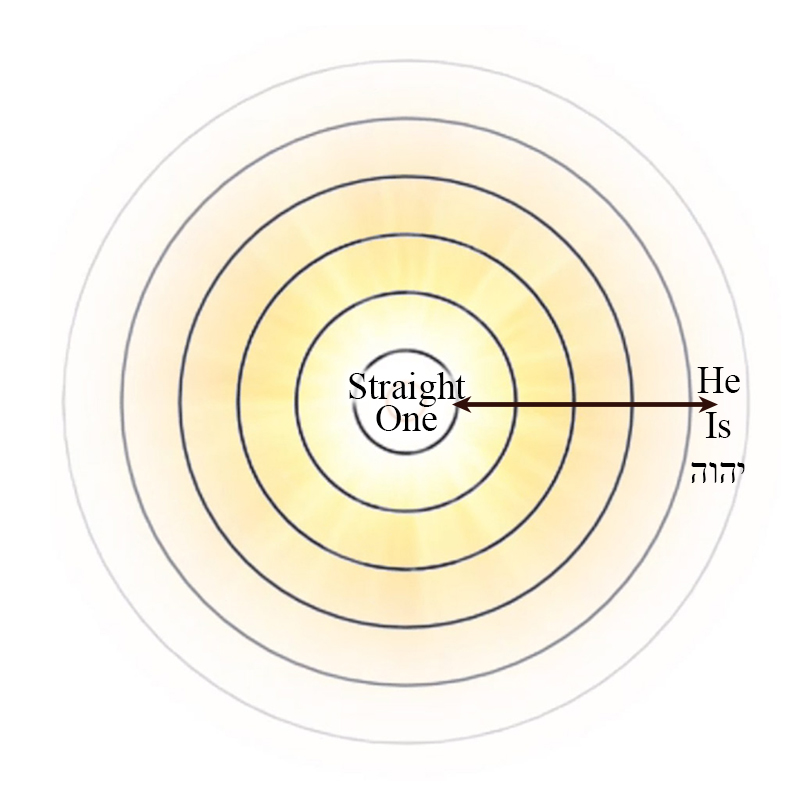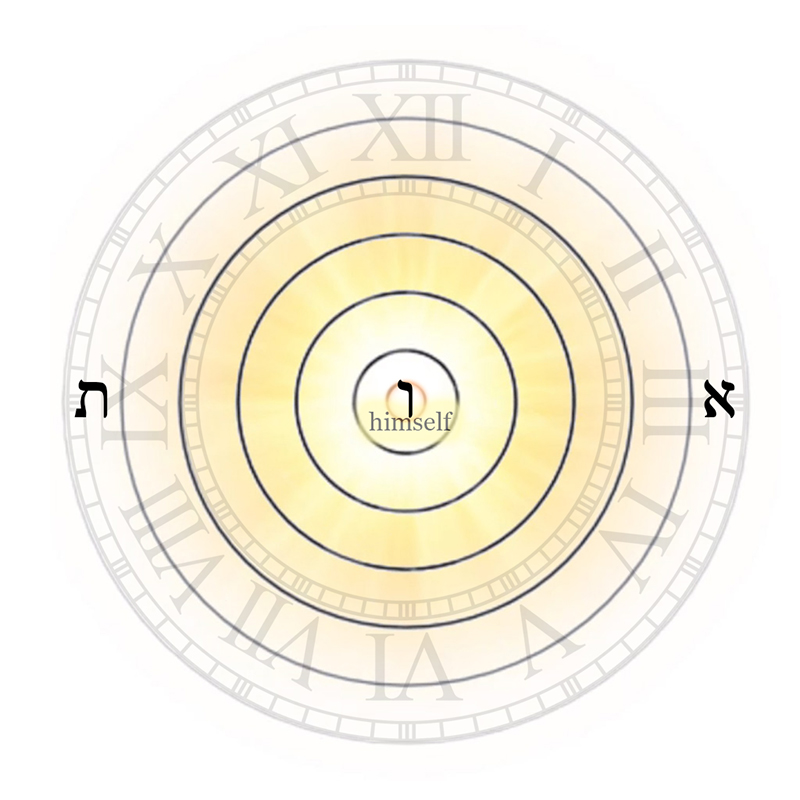Strong’s #430, elohim. Gods, mighty-ones, exceeding-ones, very great ones. Rabbis and scholars have debated for centuries over what exactly this word means. And for good reason. They didn’t want to hear what is clearly the simplest and most unadulterated meaning.
God is the People
The main difficulty lies in the usage of a masculine singular verb with a plural subject. Where the subject-verb is supposed to agree in number, in this special case it does not. On grammatical grounds the rule is broken. Subject-verb agreement is a standard rule in any language with few exceptions. In the case of Greek a 3rd person singular verb can be used with a neuter plural word in which case the third person singular verb is actually read and translated as a plural verb “are.”
It is known that this was intentional as this disagreement in number happens repeatedly with the word elohim.
Why?
An astonishing clue lies hidden in the name אליעם (Eliam) which appears in 2 Samuel 11:3, where Eliam is mentioned as the father of Bathsheba (“Daughter of Seven”). He is also referred to as one of King David’s mighty men in 2 Samuel 23:34.
Etymology:
-
אֵל (El) – “God”
-
עָם (am) – “people” or “nation”
Meaning:
-
“My God is the people” or “God is the People”
Elohim, אלהים, is concretely the plural form of eloah, אלה / אלוה (#433) which has the feminine suffix ה– attached. Scholars have treated eloah as a masculine noun and called it “prolonged” or “emphatic”. All they have to say about it is “probably a singular formed by inference from plural.” It is found only in the Hebrew poetry and later prophets. Bias has dictated that there could be no such word “goddess” in the Hebrew Bible. Were they wrong? See our word study אלה/אל el/elah Strength, Power, Authority, Might.
In spite of the obvious feminine suffix (which scholars have also given an additional “locative” meaning to) no explanation is given. The suffix according to the available definitions would be either understood as locative “toward god” or “god-ward” or feminine “god-ah” neither of which suits the palates of male “authorities” who are certain that “there is only one he-god” and will only ever be, regardless of grammar, letters, and cases. The tradition of the authorities sets the “context” for which all grammar is interpreted, and it has always been this way.
Gesenius, the 19th century Hebrew Grammarian who is considered a master of Hebrew, interpreted the unique word לאלהו “le-eloho” in Habakkuk 1:11 as “to his own god”, but the problem with this interpretation is the fact that הו is not a possessive suffix for nouns. It is however a direct object suffix for verbs. Instead, this looks as if eloah is planted in the middle of “to” and “himself“. The preposition ל “to” and the proper noun suffix וֹ “of him.” The masculine form of “god” is אל el. This can be translated “to the goddess of himself” —no grammatical rules broken, and it would be treating the writing more justly:
At that time a wind/spirit has passed by, and he is crossing over, and this is the guilt-offering of himself, the strength of himself, to the eloah/goddess of himself.
Habakkuk 1:11 RBT
Is what is written important? Or are the “authoritative” contextual traditions all that matter? If it was already written and observed for thousands of years in the Psalms undeniably, “ye are gods” the literal being:
I, Myself have spoken: ‘Elohim/mighty ones, are your eternal (את) selves, and sons of the highest, all of you.’
Psalm 82:6 RBT
Does “elohim” leave out women? Or are these sons, sons of her, eloah?
אל ← אלה ← אלהים
el → elah → elohim
The grammatical rule seems to be given in a very obvious way in the case of the Hebrew words “man” and “woman”.
She is being summoned “ishah” for she was taken from out of “ish.” (Genesis 2:23 RBT)
This text seems to give “taken out from” as the definition of the feminine suffix -ah. “Ish” is derived from the root “esh” meaning “fire.” In the case of the grammar here, the letters, apart from whatever interpretations and traditions there may be surrounding them, there is a sure order and relationship. If one were to translate the grammar into English it would look something like this, using color to bring out the masculine and feminine aspect:
god → god → gods
We can see that God begets God. Or rather, God begets God through God. The professionals never liked the feminine noun, or feminine aspect, or feminine verbiage, or feminine narrative witness around the Spirit. Some have embraced some form of the ‘Holy Spirit’ as feminine like a mother. It was there in some Catholic circles, but the concept was still elusive and supported only by a few pieces of scripture, and ultimately a contrived tradition/interpretation based on their audiences. Because for many scholars and theologians the ‘Holy Spirit’ is God and that means masculine only. Even though the Trinity was confessed, this doctrine of “only one god” prevailed, even though no such terminology, phrase, or verse exists in the texts. The true doctrine, as it is written is “GOD IS ONE” but the nuance of this apparently was overlooked and treated as saying the same thing “only one god.” But even”el/god is one” is not accurate to the Hebrew but rather “elohim/gods is one” and “your eternal selves are elohim.”
What of Singular Verbs?
Being a plural word, Elohim, the most just English translation would be “gods/mighty ones”. However, what of the anomaly that the plural word is paired to a singular masculine verb (he has cut out/created)? How is it that these Hebrews used a masculine singular verb with a plural noun? As it happens the Hebrew “עם” (am) means “people” yet is a singular noun and a plural is ascribed to it:
“…behold a people [עם singular noun] is one, and the lip/boundary is one to everyone of themselves [plural].” (Genesis 11:6 RBT)
Perhaps the word “people” should not have been singular? Yet the singular masculine is used with singular verbs, “the people, he cried toward Pharaoh for bread…” (Genesis 41:55) Perhaps that is wrong too? Only it occurs consistently.
“And the People, he multiplied…” (Exodus 1:20)
But these aren’t mistakes, they are deliberate. The definition was more or less given in Genesis 11:6, “a people is one.”
This stuff makes for confusing reading, grammatically, and so the proclivity is to change it into modern palatable reading that sounds nice and feels nice. But the charge is there to look at things closely, not be in haste, peer into it, and most of all, listen to/ hear it.
God Begets God
Yet the irony is that everything the Trinitarian theologian says about God is quite true, only he is blind to his own words. God creates himself and begets himself through himself. A pastor will preach it, but not see it. He who loves his woman, loves himself. The masculine-feminine paradox is a paradox that begins with GOD singular and ends with GOD plural. God birthing…birthing God. Where does the concept of birth and conception even find a place within a “lone masculine God”? But the Gospel is claiming that God was born, an infant, and this is where everything centers/originates.
And if Eve, the Mother of Life, be taken from out of the side of God, then she herself is of the same nature. God builds God. And Love would then exist: “God is Love.” And the offspring is also of the same nature, God. Who is the firstborn of this mega profound paradox? “As the woman from out of the man, so the man across through the woman.” And yet still at the end of the day, God is one.
אלה תולדות elah of offspring/generations. This is a frequent phrase that occurs, mainly in the Torah. It first shows up in Genesis 2:4. Compare with אל עליון el of inner height/most high, and אל שדי el shaddai/of destroyers/almighty.
Does God beget/give birth to God?
Astonishingly, we find the clue in another name, אליאל Eliel meaning “God is God.” God begets God through God. Or is God incapable of this?
The professionals never seemed to appreciate the feminine noun, or feminine aspect, or feminine verbiage, or feminine narrative witness existing around the Holy Spirit. Some have embraced some form of the Holy Spirit as feminine like a mother. It was present in some Catholic circles, but they were still unable to see it. Because for many scholars and theologians the Holy Spirit is God and that means incontrovertibilis, irrefutabilis, inexpugnabilis, certus, definitus masculine only. Even though a triune nature was recognized, the false doctrine of “only one god forever” prevailed. No such saying exists in the scriptural texts. The true doctrine, as it is written is “GOD IS ONE”. A plurality that equals one. It is in this that we understand the reason for the subject verb disagreement.
Yet the irony is that everything the Trinitarian Theologian says about God is quite true, only he is blind to his own words. God creates himself and begets himself through himself. That’s the Gospel, is it not? A pastor might preach it, but not see it. He who loves his woman, loves himself. But if God has no woman, how then is God…Love?
And if Eve, the Mother of Life, be taken from the side of God in the Christ, then she herself is of the same nature. God builds God. And the offspring is also of the same nature, God. Yet at the end of the day, God is still one.
A Mathematical-Logical Analysis of “Elohim”:
- Unity of Essence. The concept of “one” being preserved in multiplication can be modeled mathematically through the idea of identity and self-similarity. For example, in set theory, an identity element (such as 1 in multiplication) preserves the unity of the set, even when applied to elements within the set. In a sense, no matter how many elements (gods) are “generated” from the identity (God), the core identity (self) remains unaltered.
- Self-Similarity and Recursion. The principle of “begetting” implies a recursive relationship, where the process of generation does not alter the original essence. In mathematical terms, this can be viewed as a recursive function where the output of the function (God) feeds back into the input (God), retaining the same essence at each iteration. Thus, each “generation” of God does not create a new or different entity, but rather a reflection or expression of the original unity.
- Multiplicative Identity. In the realm of arithmetic, the number 1 is known as the multiplicative identity because for any number x, the equation 1 × x = x holds. More notably, when one repeatedly multiplies 1 by itself, one obtains:
 Here, no matter how many times the operation (multiplication by 1) is performed, the result remains 1. This is akin to the idea that although God “begets” or “generates” God, the essential nature remains singular and unchanged.
Here, no matter how many times the operation (multiplication by 1) is performed, the result remains 1. This is akin to the idea that although God “begets” or “generates” God, the essential nature remains singular and unchanged. - Idempotent Elements in Algebra. An element e in an algebraic structure is said to be idempotent if e ∗ e = e where ∗ represents a binary operation (which might be multiplication, union, or some abstract operation). In this sense, if one models the divine nature as an idempotent element, the repeated “begetting” operation (represented by ∗) does not alter the identity of the element:

This model encapsulates the idea that the process of “begetting” does not lead to a fragmented plurality but rather a plurality of iterations or repetitions in the essential divine nature:
![]()
- Fixed Points Under Functional Iteration. Another perspective comes from the concept of a fixed point in functional analysis. A point x is a fixed point of a function
 if
if  . If we consider a function
. If we consider a function that represents the act of “begetting,” and if the divine essence G is such that
that represents the act of “begetting,” and if the divine essence G is such that then iterating the process yields
then iterating the process yields
![]()
and so on. In this scenario, no matter how many times the process is applied, the output remains G, reinforcing the notion of an unchanging, unified entity.
Exodus 3:14
What was written demanded an ear to hear, an ear that only those born from above would understand:
ויאמר אלהים אל משה אהיה אשר אהיה
and elohim is saying toward Drawn Out [Moses]
I am him whom I am

In such a saying, “him whom” is contingent upon I am and I am. Subsequently we could interpret the following saying,
שמע ישראל יהוה אלהינו יהוה אחד
as “Hear, Israel, the Lord our God the Lord, is one” which lacks much sense and is obscure, or,
“Hear, God Straightened, He Is mighty ones of ourselves He Is
ONE.”
אהיה←אשר→אהיה
יהוה←אלהינו→יהוה
הוה
(to become)
ו
(man)
This reveals a profound progression from an obscure “I am whom I am” to “He Is mighty ones of ourselves He Is.” This is still a bit enigmatic, no? How to make sense of it all?

“the little man of the eye”

Cain’s “sign”
The Whole. From the outer “sixth day” straight into the center “Today” and straight back to the outer “sixth day” again. No matter what time of the space-time continuum, the hand of the clock is always straight. HE IS (Yahweh) straight HE IS.
She
Jesus was asked “which is the most important commandment of all?”
The Salvation answered, “Because she is first, Hear God-is-Straight, Master the God of ourselves Master is one.” Mark 12:29 RBT

Zachariah’s “dual woman” with stork wings carrying….
The Commandment is a she. Because this one, the aim of the whole, was completely missed, she the Commandment and the Writing received as much injustice and violence as she has been obscured, distorted, sold, peddled, and shut away (as though locked away in a tower, unseen by anyone) by the falsehoods of men throughout the ages.